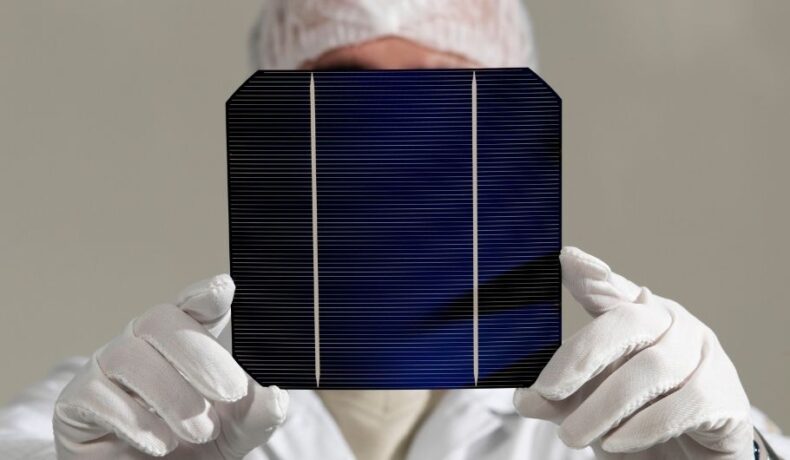It’s only natural to gravitate toward solar panel companies with panels that boast the best efficiency ratings, value for money, and warranties. Stats always look good on paper, but an increasing number of people are starting to care about where their panels are made and by whom.
In this article, we provide you with 7 of the best solar panel companies in 2025. In doing so, we discuss the essential criteria you need to know when shopping for your new solar setup.
Table of Contents
What are the 7 best solar panel companies in 2025?
There isn’t exactly a shortage of solar companies out there, so we’ve decided to make things a little bit easier for you.
Here is a list of the 7 best solar panel companies (in no particular order) in 2025:
- SunPower
- LONGi Solar
- Canadian Solar
- Jinko Solar
- JA Solar
- Trina Solar
- First Solar
1. SunPower

Key facts
| Year founded | 1985 |
| Company headquarters | San Jose, California, United States |
| CEO | Peter Faricy |
| January 2025 market cap | 2,92 billion USD |
| Warranty information | Value-line Performance panels 25-year warranty (power, product, and service) Flagship Maxeon panels 40-year warranty (power, product, and service) |
2. LONGi Solar
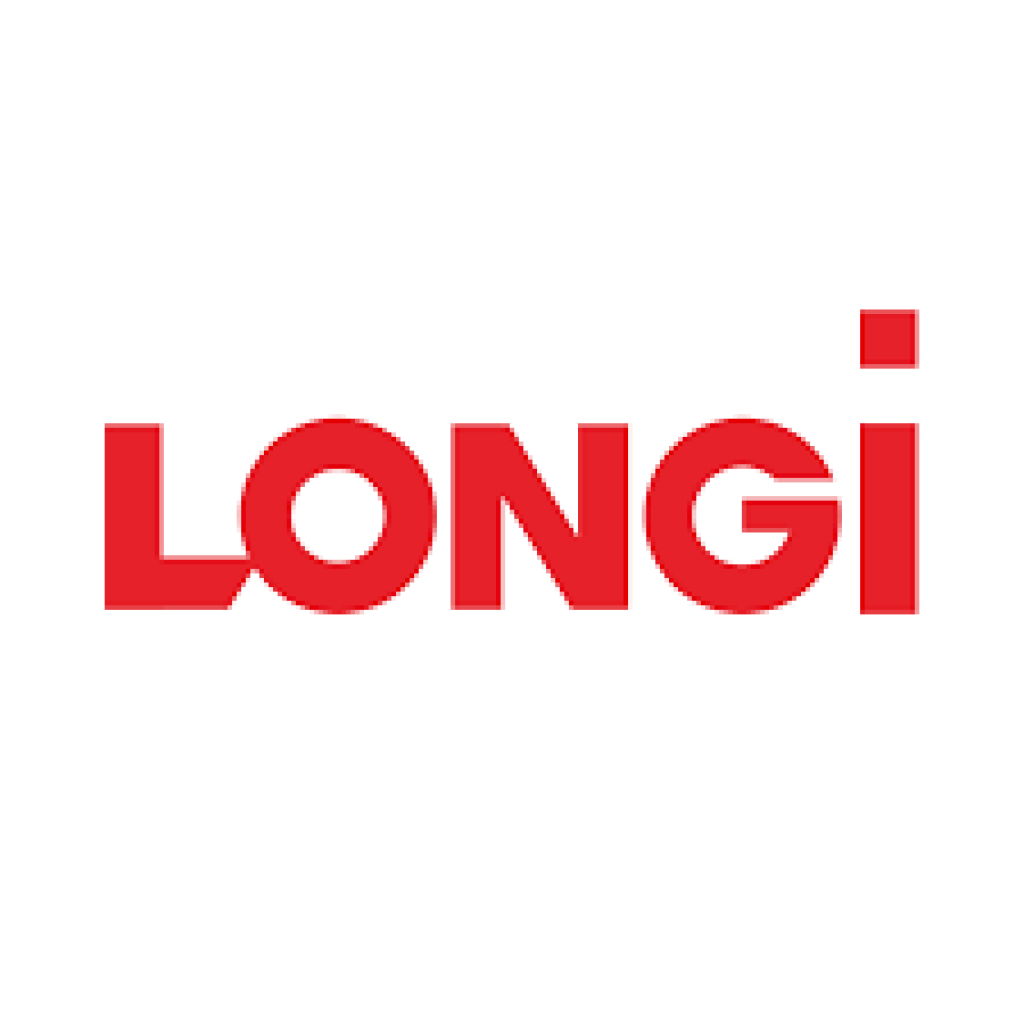
Key facts
| Year founded | 1985 |
| Company headquarters | San Jose, California, United States |
| CEO | Li Zhenguo |
| January 2025 market cap | 308,19 billion USD |
| Warranty information | Single glass modules 12-year product warranty 25-year performance warranty Dual glass modules 12-year product warranty 30-year performance warranty |
3. Canadian Solar
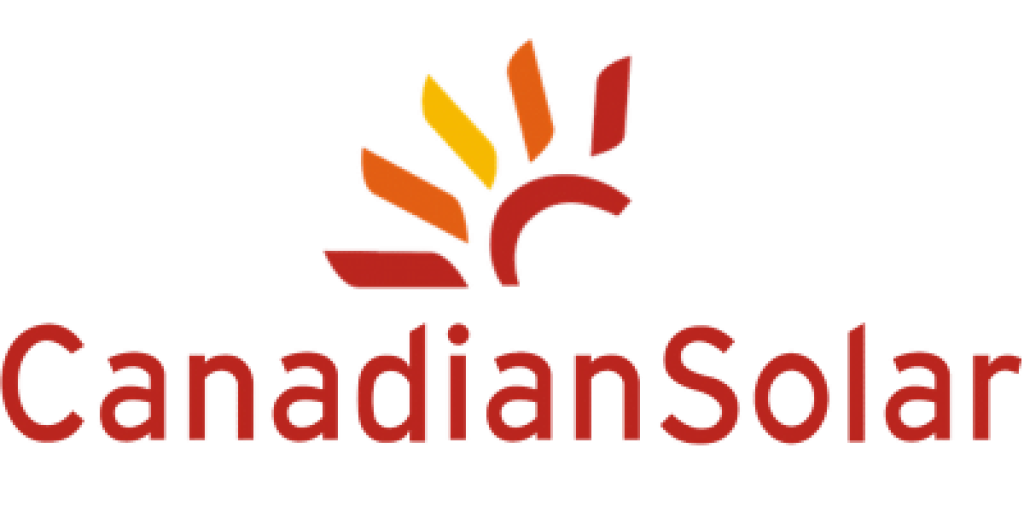
Key facts
| Year founded | 2001 |
| Company headquarters | Guelph, Canada |
| CEO | Xiaohua Qu |
| January 2025 market cap | 2,04 billion USD |
| Warranty information | 25-year product and performance warranty |
4. Jinko Solar
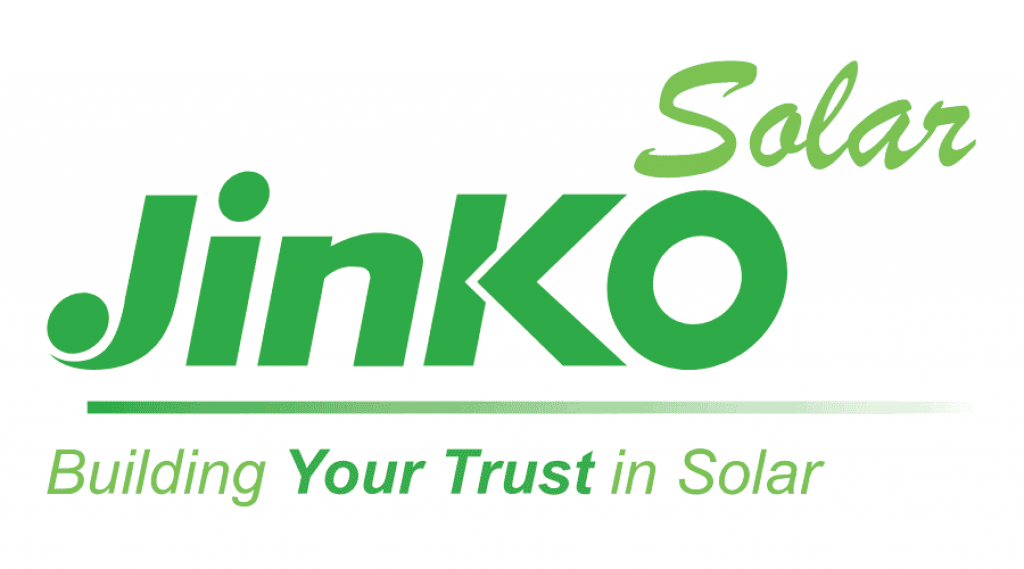
Key facts
| Year founded | 2006 |
| Company headquarters | Shanghai, China |
| CEO | Xiande Li |
| January 2025 market cap | 2,03 billion USD |
| Warranty information | 10-year product warranty 25-year linear power warranty |
5. JA Solar
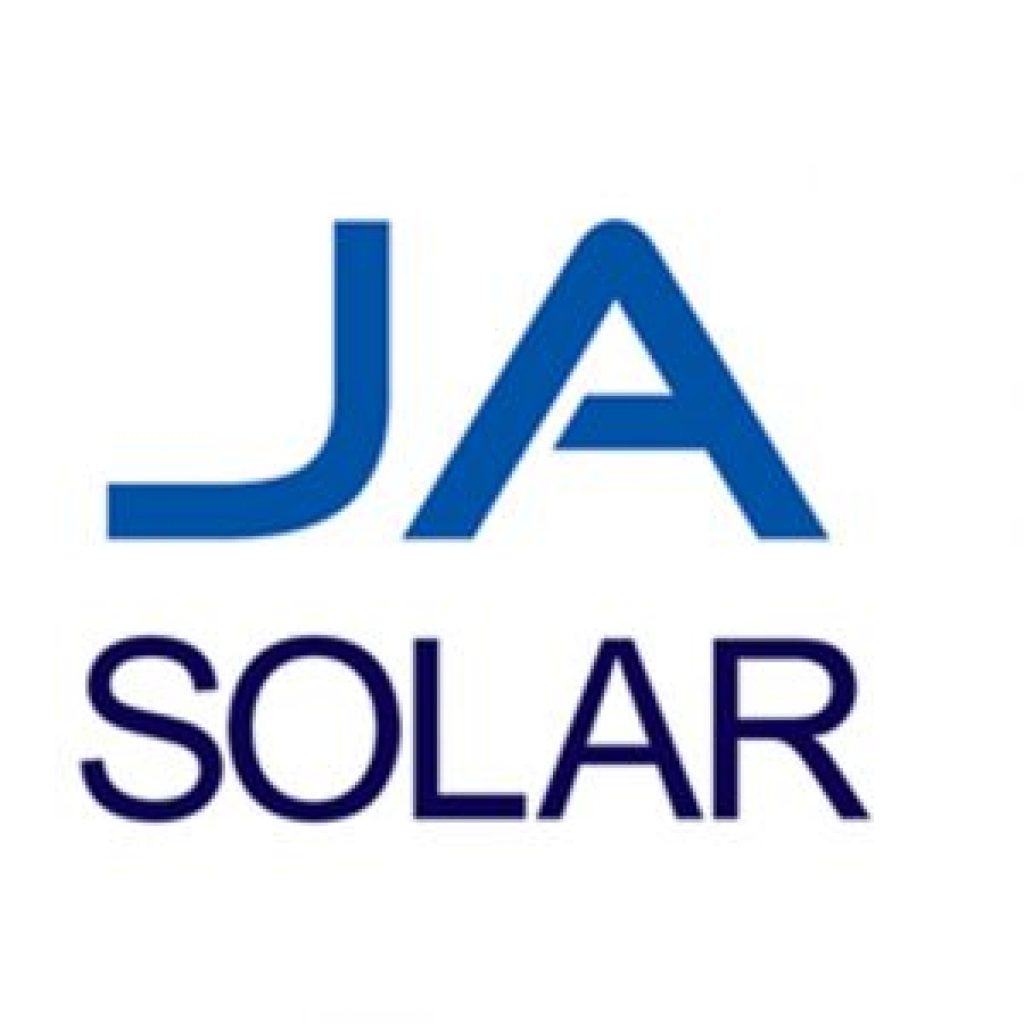
Key facts
| Year founded | 2005 |
| Company headquarters | Beijing, China |
| CEO | Jin Baofang |
| January 2025 market cap | 105.143 billion USD |
| Warranty information | 12-year product warranty 30-year peak power warranty |
6. Trina Solar
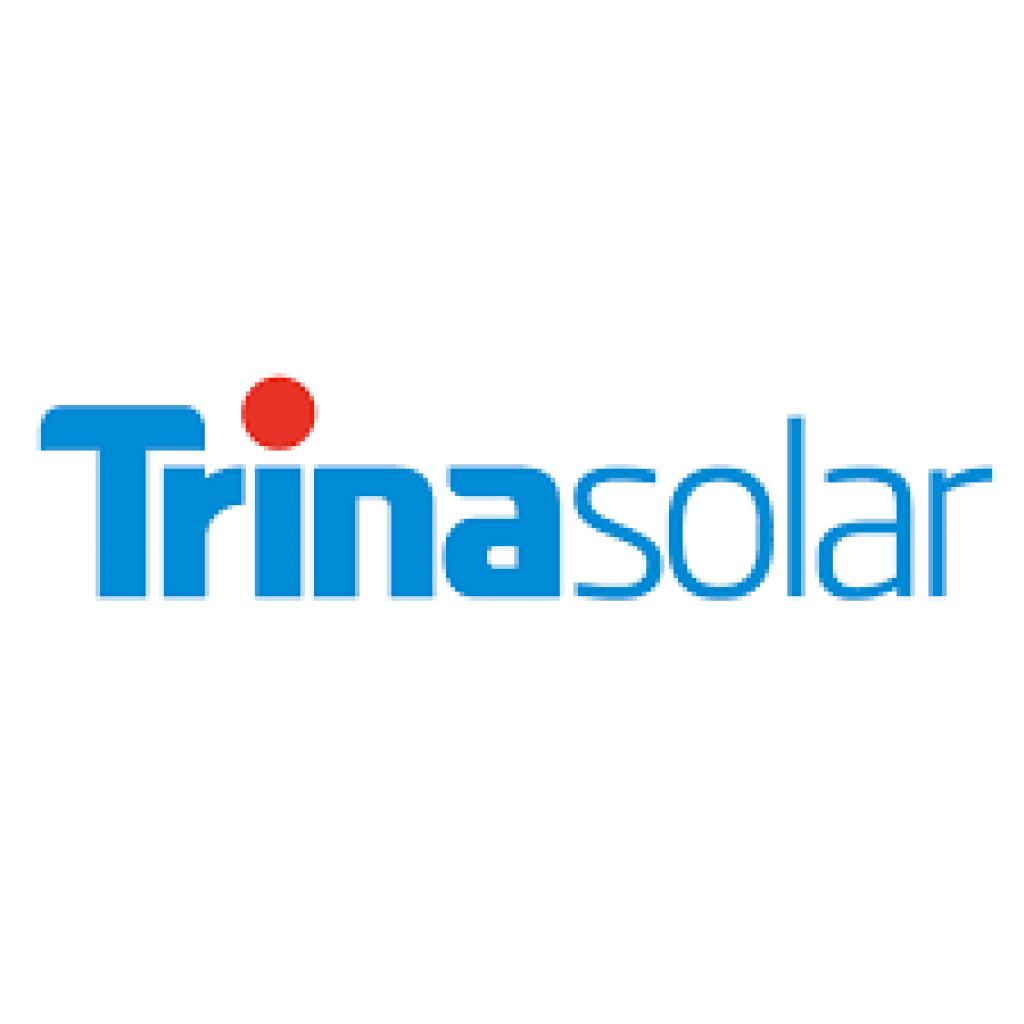
Key facts
| Year founded | 1997 |
| Company headquarters | Changzhou, China |
| CEO | Jifan Gao |
| January 2025 market cap | 140,62 billion USD |
| Warranty information | 25-year product and power warranty |
7. First Solar
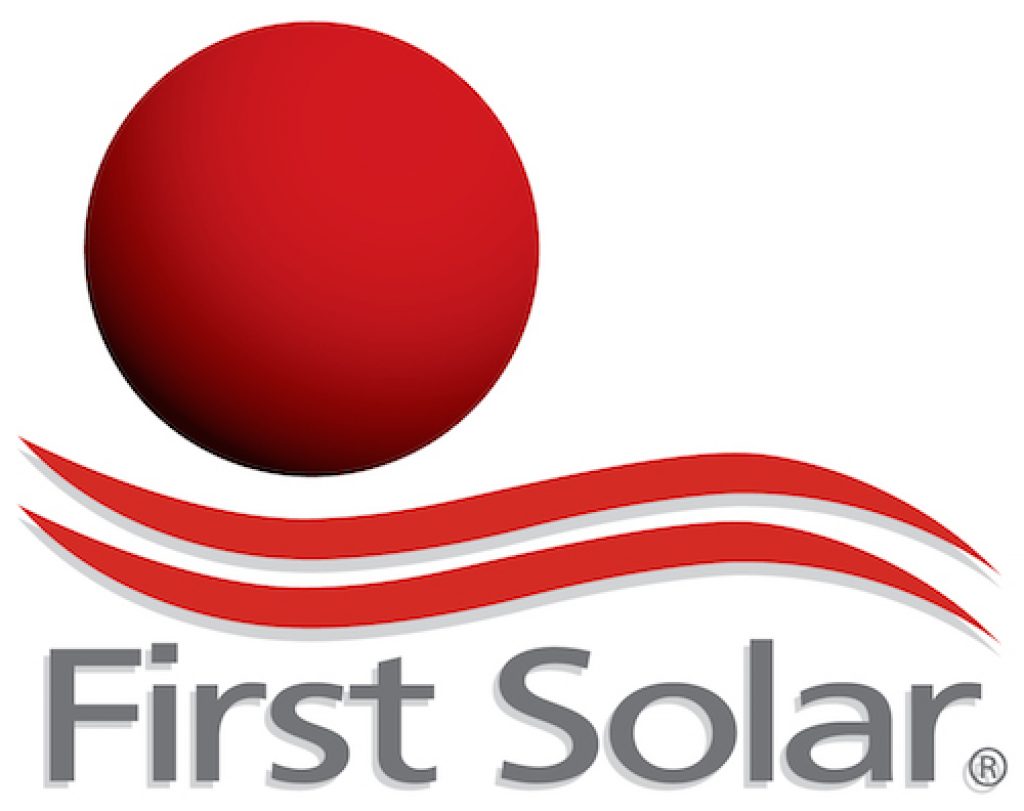
Key facts
| Year founded | 1999 |
| Company headquarters | Tempe, Arizona, United States |
| CEO | Mark R Widmar |
| January 2025 market cap | 15,51 billion USD |
| Warranty information | 10-year material and workmanship warranty 25-year power output warranty |
Related Reading: Tesla Vs. Enphase (Which battery should you choose?)
How we chose the best solar panel companies
A company’s financial visibility and stability aren’t the only factors you need to look out for when looking for the best solar panel manufacturers.
Product quality, performance, durability, and the warranties that a company provides are just as, if not more, important. As such, we’ve chosen the above solar companies based on the following criteria:
- Price per watt
- Solar panel efficiency
- Market cap
- Warranty period
Price per watt
Before you decide on a solar company that you want to go with, you’ll want to know the price per watt of their systems.
How do you calculate the price per watt for a solar panel system?
Solar system sizes are usually described in kilowatts (kW, where 1kW = 1,000 watts).
To calculate the price per watt, you’ll need to take the total out-of-pocket cost of the system that you are considering and divide it by the wattage capacity of that system.
For example, a 5kW solar system has 5000 watts. If that system costs $15,000, the cost per watt is:
$15,000 / 5000W = $3/W
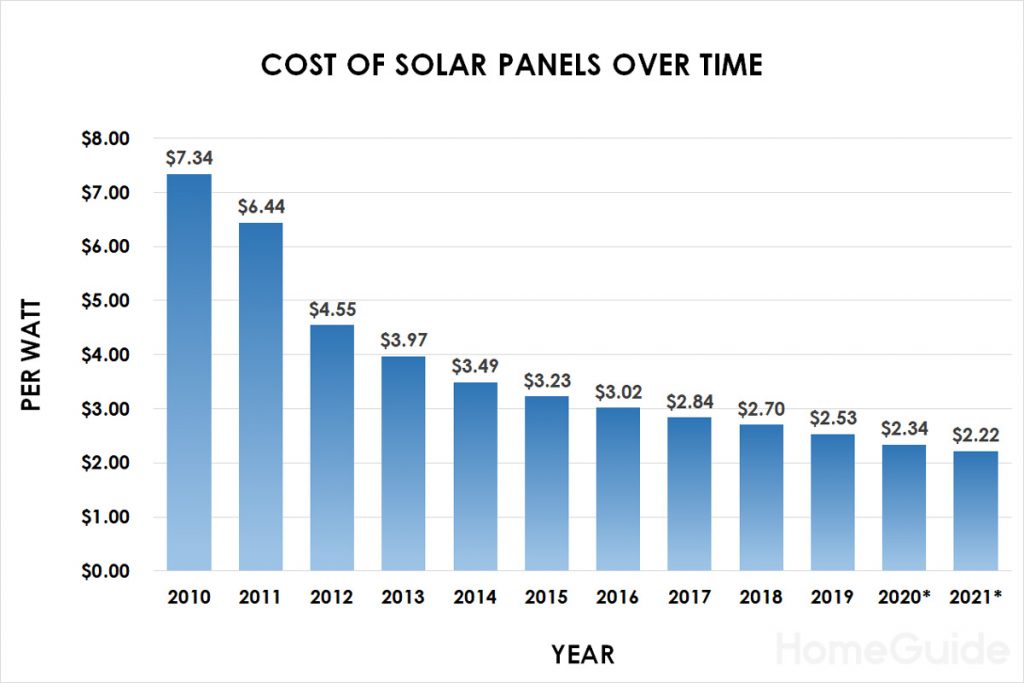
Solar panel efficiency
By now, you’ve more than likely heard of solar cell efficiency. This refers to the portion of energy in the form of sunlight that can be converted via photovoltaics into electricity by the solar cell.
As such, this solar panel metric details how well your solar panel will be able to convert sunlight into usable energy.
Currently, the average efficiency rating for solar panels stands at 15%-18%. You want your panel efficiency to be as high as possible.
Why?
Because the more efficient your solar panels are, the higher their energy output, meaning more bang for your buck.
Warranty period
You’ve managed to save up for a brand-new TV and think you’ve found the perfect one. But there’s one issue: the warranty period seems a little shorter than you’d like and isn’t very comprehensive. Now that TV is no longer an option for you.
This scenario also applies to the purchasing of solar panels.
Let’s be honest — solar systems are not cheap. It stands to reason why you’d choose a solar company that trusts its products enough to back them up with extended, comprehensive warranties.
So what you’re really looking for here is a warranty that covers both the equipment (product warranty) and the performance of your panels (power output warranty).
Product warranty
Most solar companies offer at least a 10-year materials warranty.
Performance warranty
The best solar panel companies back their products with a linear performance warranty for 25 to 30 years.
The linear performance warranty guarantees that the performance of a panel will stay above a specified degradation rate (the decline in output that all solar panels experience).
This assures you that the panel will continue to have the capability to produce a specified percentage of power during the warranty period. On average, a solar panel’s performance warranty will guarantee 90% production at 10 years and 80% at 25 years.
Related Reading: LG Energy Solution Vs. Tesla Powerwall (Which battery is best for you?)
Solar panel company stats
Now that you have a better understanding of what the above terms mean and why they’re important, let’s take a closer look at how the solar companies in this article stack up against one another:
| Manufacturer | Price Per Watt | Panel Efficiency Range | Market Cap | Warranty Period |
|---|---|---|---|---|
| SunPower | $3.35 | 19.6% to 22.8% | $2,92 billion | Value-line Performance panels: 25-year Product, Performance & Service. Flagship Maxeon panels: 40-year Product, Performance & Service. |
| LONGi Solar | $2.81 | 18.2% to 20.9% | $308,19 billion | Single glass modules: 12-year product warranty 25-year performance warranty Dual glass modules: 12-year product warranty 30-year performance warranty |
| Canadian Solar | $2.96 | 15.88% to 19.91% | $2,04 billion | 25-year product and performance warranty |
| Jinko Solar | $2.79 | 18.67% to 20.38% | $2,03 billion | 10-year product warranty 25-year linear power warranty |
| JA Solar | $2.66 | 15.8% to 20.4% | $105.143 billion | 12-year product warranty 30-year peak power warranty |
| Trina Solar | $2.82 | 16.2% to 20.4% | $140,62 billion | 25-year product and power warranty |
| First Solar | $2.53 | 17% to 18.3% | $15,51 billion | 10-year material and workmanship warranty 25-year power output warranty |
Final thoughts
Healthy competition in any industry is vital, and at the end of the day, the more options there are on the market, the better for you, the consumer.
That said, we recognize how difficult it can be to make an informed choice when there are so many solar companies to choose from.
In closing, we hope this article gives you the direction and confidence you need with your future solar system purchase.

